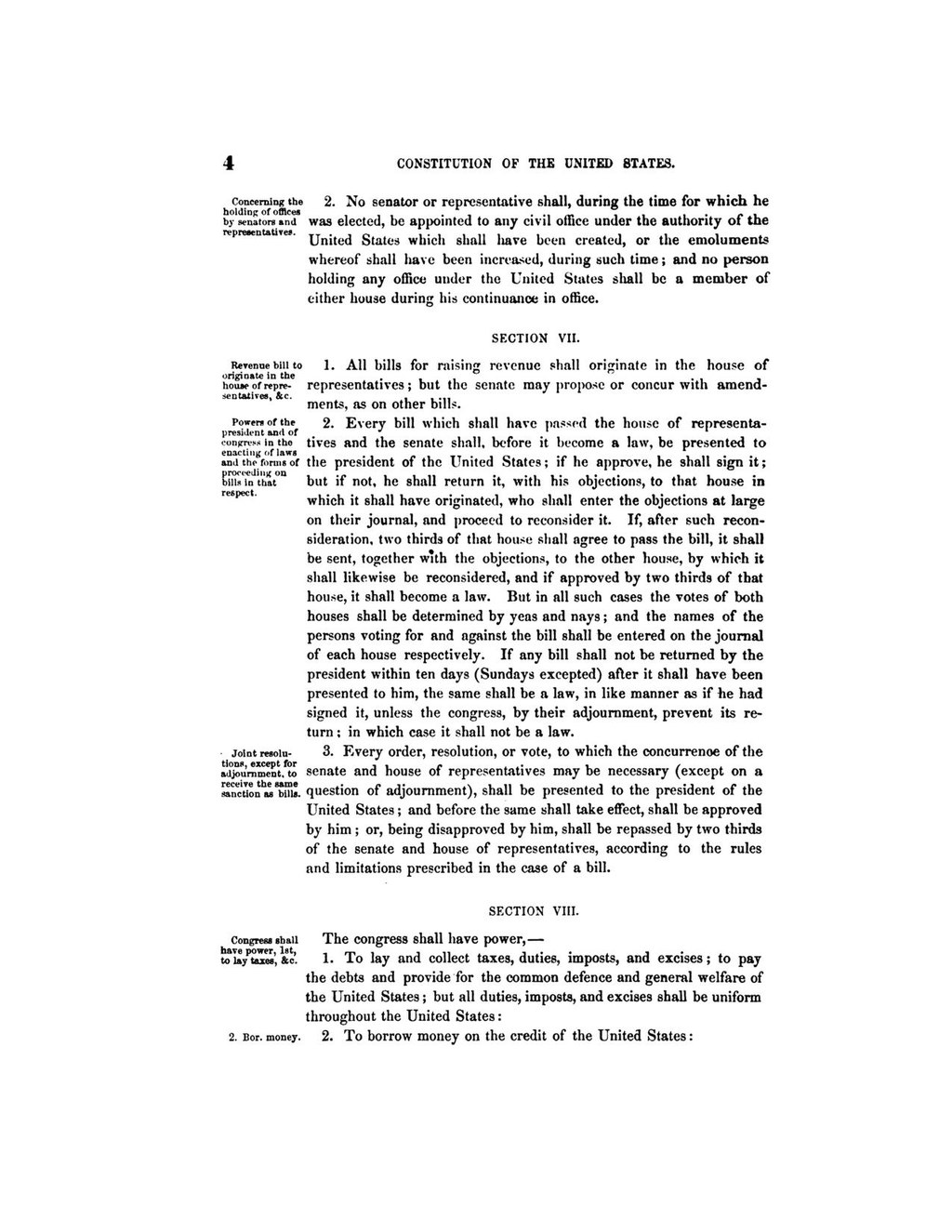Concerning the holding of offices by senators and representatives.2. No senator or representative shall, during the time for which he was elected, be appointed to any civil office under the authority of the United States which shall have been created, or the emoluments whereof shall have been increased, during such time; and no person holding any office under the United States shall be a member of either house during his continuance in office.
SECTION VII.
Revenue bill to originate in the house of representatives, &c.1. All bills for raising revenue shall originate in the house of representatives; but the senate may propose or concur with amendments, as on other bills.
Powers of the president and of congress in the enacting of laws and the forms of proceeding on bills in that respect.2. Every bill which shall have passed the house of representatives and the senate shall, before it become a law, be presented to the president of the United States; if he approve, he shall sign it; but if not, he shall return it, with his objections, to that house in which it shall have originated, who shall enter the objections at large on their journal, and proceed to reconsider it. If, after such reconsideration, two thirds of that house shall agree to pass the bill, it shall be sent, together with the objections, to the other house, by which it shall likewise be reconsidered, and if approved by two thirds of that house, it shall become a law. But in all such cases the votes of both houses shall be determined by yeas and nays; and the names of the persons voting for and against the bill shall be entered on the journal of each house respectively. If any bill shall not be returned by the president within ten days (Sundays excepted) after it shall have been presented to him, the same shall be a law, in like manner as if he had signed it, unless the congress, by their adjournment, prevent its return; in which case it shall not be a law.
Joint resolutions, except for adjournment, to receive the same sanction as bills.3. Every order, resolution, or vote, to which the concurrence of the senate and house of representatives may be necessary (except on a question of adjournment), shall be presented to the president of the United States; and before the same shall take effect, shall be approved by him; or, being disapproved by him, shall be repassed by two thirds of the senate and house of representatives, according to the rules and limitations prescribed in the case of a bill.
SECTION VIII.
Congress shall have power, 1st, to lay taxes, &c.The congress shall have power,—
1. To lay and collect taxes, duties, imposts, and excises; to pay the debts and provide for the common defence and general welfare of the United States; but all duties, imposts, and excises shall be uniform throughout the United States:
2. Bor. money.2. To borrow money on the credit of the United States:
